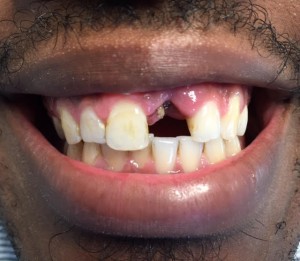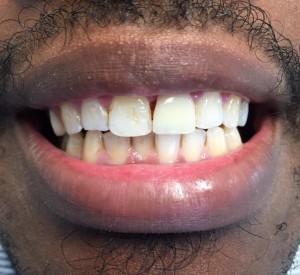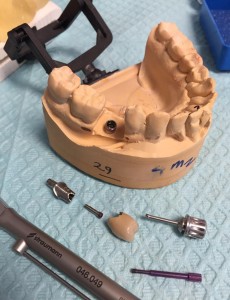
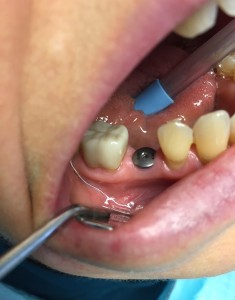
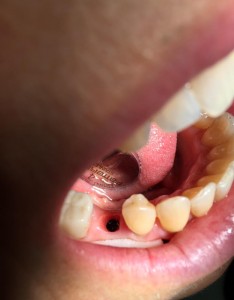
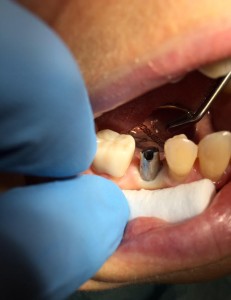
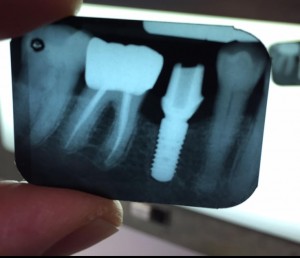
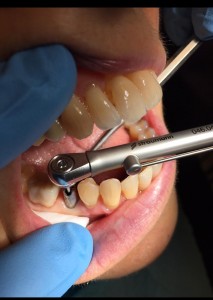
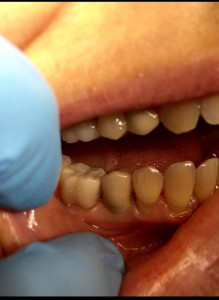
Too many people who have conventional dentures don’t wear them for the simple fact that they don’t stay in place. Dental Implants offer a way to keep dentures in place and allow you to go about your daily life with confidence.
 The use of dental implants to stabilize dentures has proven to be successful for many people. The number continues to grow as word spreads about the effectiveness and long-term durability of the treatment. In fact, it has been reported that dental implants have the highest success rate of any implanted surgical device.*
The use of dental implants to stabilize dentures has proven to be successful for many people. The number continues to grow as word spreads about the effectiveness and long-term durability of the treatment. In fact, it has been reported that dental implants have the highest success rate of any implanted surgical device.*
Millions of people around the world are missing enough teeth to require the use of a denture. Many of them struggle to keep their dentures secure, particularly in the lower jaw. If you have this problem, you already know about the embarrassment of slipping dentures, not being able to eat the foods that you love and the ineffectiveness of denture adhesives. Fortunately, there is a way to make your denture work the way it was intended: stabilize it with dental implants.
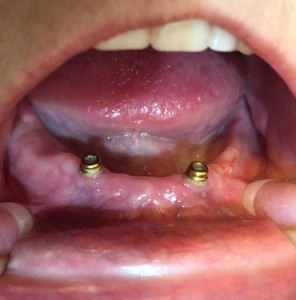
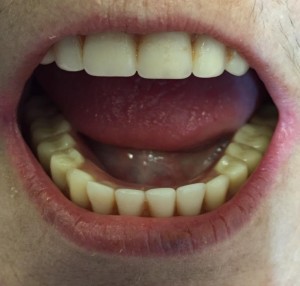
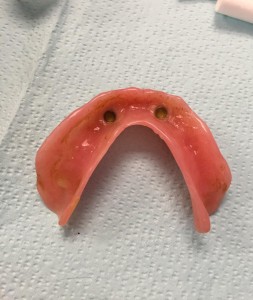
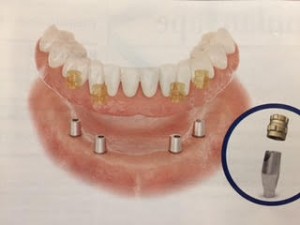
Dentures are removable appliances that can replace missing teeth and help restore your smile. If you’ve lost all of your natural teeth, whether from gum disease, tooth decay or injury, replacing missing teeth will benefit your appearance and your health. That’s because dentures make it easier to eat and speak better than you could without teeth—things that people often take for granted.
When you lose all of your teeth, facial muscles can sag, making you look older. Dentures can help fill out the appearance of your face and profile. They can be made to closely resemble your natural teeth so that your appearance does not change much. Dentures may even improve the look of your smile.
New dentures may feel awkward for a few weeks until you become accustomed to them. The dentures may feel loose while the muscles of your cheek and tongue learn to keep them in place. It is not unusual to experience minor irritation or soreness. You may find that saliva flow temporarily increases. As your mouth becomes accustomed to the dentures, these problems should go away. Follow-up appointments are generally needed after a denture is inserted so the fit can be checked and adjusted.
Even if you wear full dentures, you still have to practice good dental hygiene. Brush your gums, tongue and roof of your mouth every morning with a soft-bristled brush before you insert your dentures to stimulate circulation in your tissues and help remove plaque.
Dr. Gentry’s photos of one of his immediate complete upper denture cases.
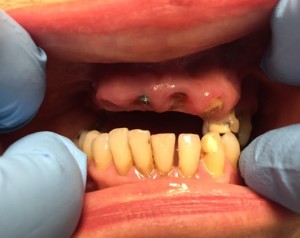
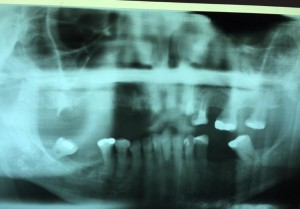
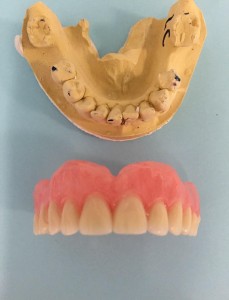
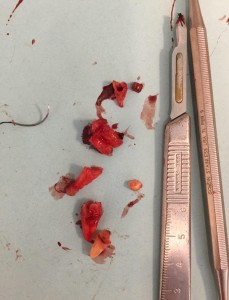
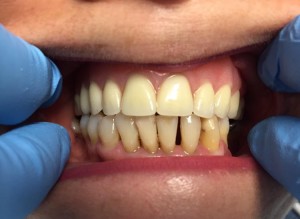
If you or someone you know experiences severe tooth, jaw or facial muscle pain, it may be from the effects of grinding or clenching your teeth. The good news is that Dr. Gentry may be able to prescribe a custom-made Comfort H/S™ (Hard/Soft) Bite Splint, which offsets the pain caused by bruxing or grinding your teeth.
A nightguard is a proactive step to protect your existing healthy teeth. A clear, thin removable device, your custom-made bite splint is worn over your lower or upper teeth as you sleep.
Studies suggest those who grind and clench their teeth may experience up to 80 times the normal tooth wear per day compared to those who do not. The good news is that a simple bite splint can offset the effects of this often-subconscious habit while protecting your teeth from daily wear and tear.
When deep decay that is close to the tooth pulp is present in a tooth, many times it requires a root canal. In this 35 year old patient, Dr. Gentry restores her upper bicuspid tooth without a root canal or crown. Gentry cleans out the decay, places a Vitrabond glass ionomer pulp cap, and places a Herculite composite restoration, using the Garrison Matrix System.
Cavities are permanently damaged areas in the hard surface of your teeth that develop into tiny openings or holes. Cavities, also called tooth decay or caries, are caused by a combination of factors, including bacteria in your mouth, frequent snacking, sipping sugary drinks, and not cleaning your teeth well. Cavities and tooth decay are among the world’s most common health problems.
If cavities aren’t treated, they get larger and affect deeper layers of your teeth. They can lead to severe toothache, infection and tooth loss. Regular dental visits and good brushing and flossing habits are your best protection against cavities and tooth decay.
Some examples of Dr. Gentry fixing patient’s dental cavities:
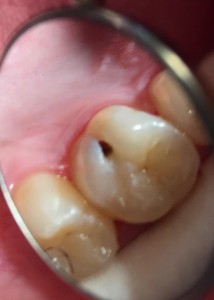
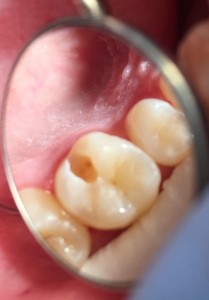
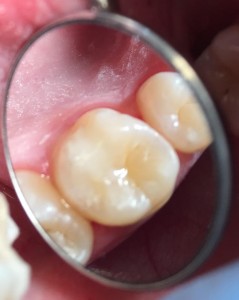
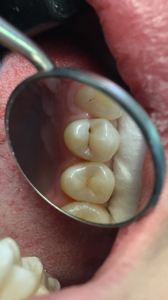
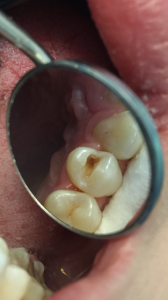
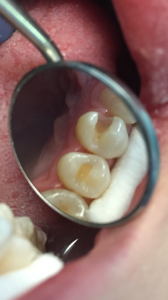
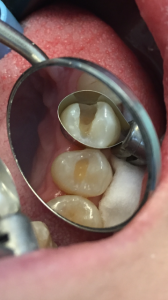
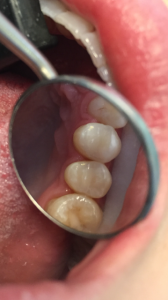
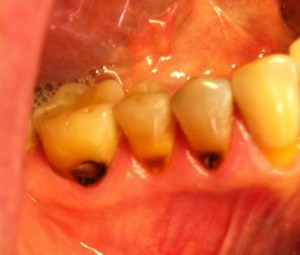
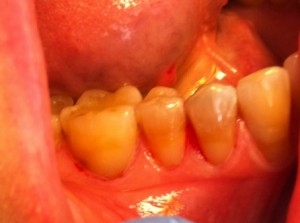
In these 2 examples of immediate partial dentures, Dr. Gentry extracts the patients broken, decayed, hopeless teeth and places the partial denture at the same visit. Following healing dental implants, fixed bridges or a flexible partial denture will be fabricated.
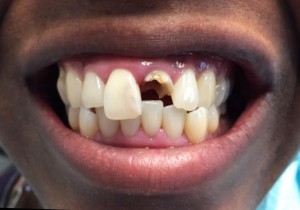
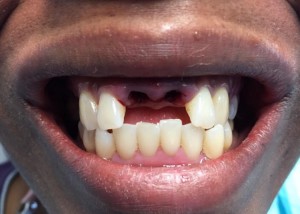
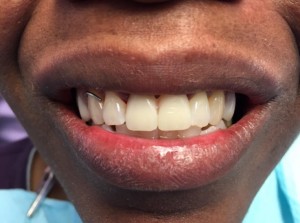

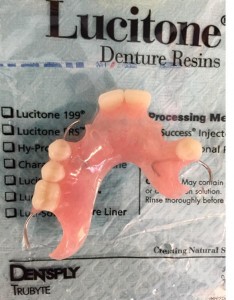
Another extraction and immediate partial denture case of Dr. Gentry’s replacing one upper front tooth.
